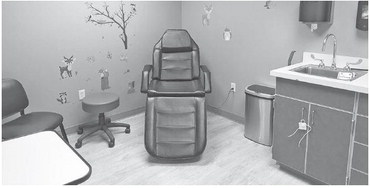The rise over-pathologizing in our online world


Gaslighting. Narcissism. Attachment theory. Trauma. Mindfulness. All of these have become buzzwords in online discourse surrounding mental health. There is an increased awareness on the importance of taking care of our mental health. It’s good that we can remove the stigma around talking about mental health; people should not feel ashamed to ask for help if they need it. However, with the increased chatter about mental health online has also come a host of people self-diagnosing themselves with conditions they don’t actually have.
TikTok is the prime breeding ground for this type of thing. As an example, a popular TikTok video features an adult woman suddenly looking at the camera with the apparent realization that “excessive reading” in childhood is considered a “dissociative behavior” (as cited in the Vox article “How mental health became a social media minefield” by Rebecca Jennings). Dissociative disorders have to do with people feeling distant and emotionally unconnected to themselves, numbing themselves or detaching from reality. The video has more than 132,000 likes and more than 3,500 comments, with many commenters realizing that they, too, may supposedly show this sign of a mental health disorder. “12th grade reading level in 5th grade you say? Damn … #trauma” wrote one commenter. Alternatively, they could have just liked to read a lot.
The point is, not everything is a sign of mental disorder. The meaning of pathologize is “to view or characterize as medically or psychologically abnormal.” It’s not inherently good or bad to pathologize; it depends if the characterization is warranted. The problem is that while there are legitimate signs and symptoms of mental illness, there can be a tendency in our Information Age to over-pathologize, assuming certain tendencies are indicative of mental illness when they’re actually not, or using “slight and short-lived symptoms” as proof positive for mental illness (Hadil Dewak, “Scrolling for a Diagnosis”).
For instance, Dr. David H. Rosmarin of the Center for Anxiety said he sees many clients who are convinced they have anxiety but it’s actually a different diagnosis, or doesn’t rise to the level of clinical diagnosis.
“I’ll say, sleep eight hours a night for the next two weeks,” said Rosmarin in an interview with Vox Media. “Come back and tell me how you’re feeling. I’ve tried that trick many times with stressed-out patients, and they’re at 50 percent of their stress level two weeks later with no therapy at all.”
Instead of evaluating overall wellness factors like sleep, diet and exercise, many people hastily self-diagnose.
So why do we over-pathologize? There are several reasons. One is, information presented on the internet is often given in short sound bites. It’s oversimplified, lacking any sort of context. This makes it easier to jump to conclusions. Becoming accustomed to only processing short blips of information even lends itself to one self-diagnosis in particular. A lot of online influencers will talk about having trouble focusing or struggling to complete difficult tasks as telltale signs the viewer has ADHD — rather than acknowledging that these are all “common attributes of the modern mind,” as Jennings puts it, especially living in an instant gratification society.
One of the other reasons for over-pathologizing is we as humans like categories. We like to put labels on things and package them into neat boxes. It’s understandable that we do this, because categories are one way we make sense of our world. But people are messy and don’t typically fit into the boxes we try to put them in. And if we paint with too broad a brush, words lose their meaning. As an example, a lot of people have latched onto the word “trauma” and used it to describe things that are not, in fact, actual trauma, i.e. “I got a bad haircut and it was so traumatizing.” That’s not particularly helpful to people who have gone through something truly traumatic like sexual violence or a serious accident. Perhaps we need a more sophisticated vocabulary when it comes to talking about mental health. Yes, an event can be emotionally distressing, but that doesn’t mean it rises to the level of trauma.
Another reason we tend to over-pathologize is that we as a modern society are obsessed with the self. Further, people may lack the support system of family and friends they would traditionally turn to first for mental support.
The dangers in over-pathologizing include a person thinking there is something inherently wrong with them that can’t be changed, overmedicating, and not actually improving the person’s health because of treating the wrong issue.
Going back to the definition of pathologize as characterizing someone as “medically or psychologically abnormal,” even that is subjective because culture, values and beliefs all play a role in what we consider “normal” or “abnormal.” Mental health professionals reference the Diagnostic and Statistical Manual of Mental Disorders when making diagnoses, but they would tell you there is still nuance involved and the patient’s own circumstances to be taken into consideration. So, where does all this leave us?
It really comes down to the degree a mental health concern is affecting a person’s everyday life and ability to function. The Singapore Counselling Centre is helpful here.
“Disorders are often characterised by the intensity, persistence, and level of distress and dysfunction that it brings into one’s life. For example, major depressive disorder is more than just ‘feeling sad’. Likewise for anxiety disorders such as OCD (obsessive compulsive disorder), it is more than just being hygienic, or wanting things to be neat… We can seek professional help to deal with our mental health related symptoms if they are beginning to interfere with daily living, cause distress, and persist even without stressors,” an article for the Centre states.
Those guidelines can at least provide a starting point for seeking treatment.
A quick note: This is not trying to diminish anyone’s experience — many people with mental health concerns benefit greatly from counseling, therapy or medication. We just have to be careful not to rush into a diagnosis, and when in doubt, seek the advice of a mental health professional.
Striking a
Chord...




